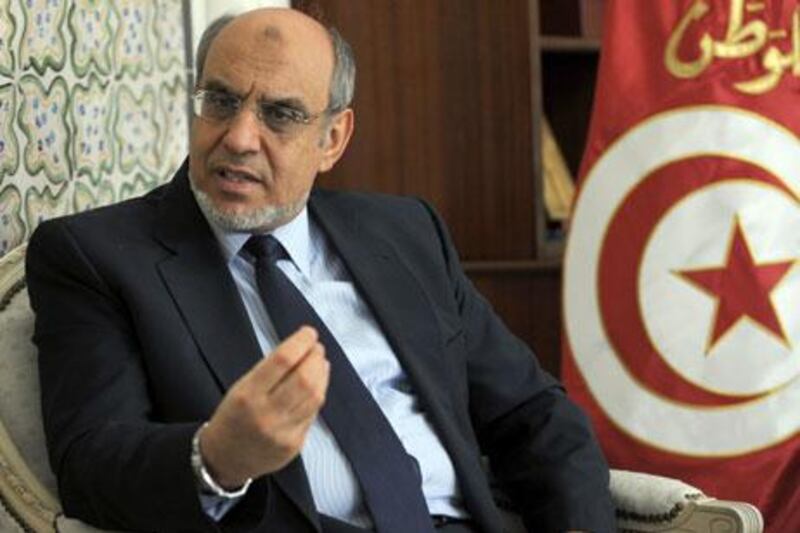TUNIS // The Tunisian prime minister stepped down yesterday, leaving the government close to collapse after two weeks of chaos and the failure of the pragmatic Islamist Hamadi Jebali to resolve the competing demands of staunchly opposed political factions.
After a meeting with Tunisian president Moncef Marzouki, Mr Jebali spoke at the presidential palace to confirm that since he had failed in his aim to end nationwide unrest with a political reconciliation, he would resign as promised.
Mr Jebali announced Monday night that he had not succeeded in his reconciling the opposition's call for government of technocrats to replace the existing ministers, with his party's insistence that the cabinet remain in place.
Analysts say it is not impossible that the president may ask Mr Jebali to try again to form a government.
Already five months overdue in the production of a new draft constitution for the country, and apparently unlikely soon to hold elections already delayed once, the interim authorities were already the subject of much criticism when the assassination of an opposition leader on February 6 escalated dissatisfaction to outrage and prompted huge street protests.
Faced with renewed calls for the cabinet to resign, mainly from secular and leftist opposition figures from the same political camp as the slain Chokri Belaid, Mr Jebali spent days in talks with other parties. His own party, the dominant, Islamist Ennahda, opposed his call for a government of non-partisan experts.
Despite the failure of his efforts, Mr Jebali pointed to his success in turning a nationwide crisis of demonstrations, that turned violent in some places, into a situation where elected politicians were attempting to negotiate a solution.
The initiative, "gathered political parties to engage in dialogue and paved the way for a new compromise on the line-up of the next cabinet," he said, according to Tunisian state media. Following a meeting with president Moncef Marzouki last night, he said he hoped that another solution would be swiftly found.
Mr Jebali, who spent 16 years in prison under the rule of Zine El Abidine Ben Ali, for the publication of controversial articles and membership of then-illegal Ennahda, was by all accounts a man who sought political compromise during his term, said Jon Marks, a North Africa expert at London's Chatham House think tank.
His failure to find a way forward will frustrate Tunisians waiting for government progress, especially on economic issues, said Mr Marks.
"In the short term and the political sense, clearly it's taking people's mind off the central issue which is to overhaul the institutions of the Tunisian state ... so you have a genuine democracy and a fit-for-purpose government." he said. "The only way to achieve this is to get the constitution going."
Meanwhile, Standard & Poor's Ratings Services downgraded Tunisia's government credit rating yesterday because of the political instability. Tunisia's rating was lowered to BB- from BB with a negative outlook. It is the third such downgrade since the 2011 uprising.
afordham@thenational.ae
* With additional reporting by Associated Press





